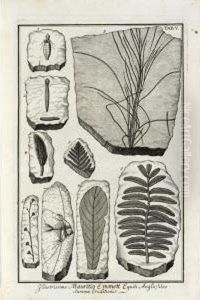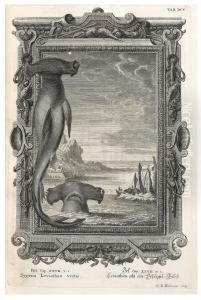Johann Jakob Scheuchzer Paintings
Johann Jakob Scheuchzer was a Swiss scholar born on August 2, 1672, in Zürich, Switzerland. He was a man of many interests and talents, primarily known for his work in natural history, paleontology, and medicine. Scheuchzer's contributions spanned across various scientific disciplines, reflecting the intellectual curiosity and interdisciplinary approach typical of the Enlightenment period. He was a pioneering figure in the early study of the natural world, making significant contributions to our understanding of earth's history and the fossils embedded within it.
Scheuchzer studied medicine at the University of Altdorf and the University of Tübingen, receiving his MD from the latter institution. However, his intellectual curiosity extended far beyond the field of medicine. He immersed himself in the study of natural sciences, particularly geology and paleontology. Scheuchzer was deeply influenced by the work of contemporary scientists and was a part of the burgeoning scientific community that sought to understand the natural world through observation and evidence.
One of Scheuchzer's most significant contributions was his work on fossils, which he famously interpreted as the remains of creatures drowned in the Biblical flood. This interpretation reflected the attempt of early modern scientists to reconcile their findings with religious beliefs. His most famous work, 'Piscium Querelae et Vindiciae' (Complaint and Vindication of the Fishes), published in 1708, was an early attempt to catalog fossils and link them to known animals, showcasing his pioneering efforts in paleontology.
Scheuchzer's interests also extended to meteorology and geology. He conducted comprehensive studies of the Swiss Alps, documenting geological formations and theorizing about the processes that shaped them. His work 'Ouresiphoites Helveticus, sive Itinera per Helvetiae Alpinas Regiones' published in 1723, described his journeys across the Swiss Alps, offering insights into the geology and natural history of the region. This work was instrumental in promoting the study of the Alps and laid the groundwork for future geological exploration.
Johann Jakob Scheuchzer's legacy is that of a polymath who contributed significantly to the early development of several scientific disciplines. His efforts to catalog and understand the natural world paved the way for future generations of scientists. Despite some of his interpretations being colored by the religious and philosophical perspectives of his time, Scheuchzer's work remains a valuable part of the scientific heritage. He died on June 23, 1733, in Zürich, leaving behind a body of work that continues to be of interest to historians of science and paleontology.

